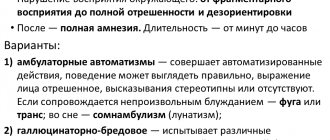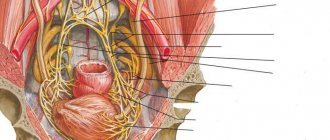The frantic pace of life, frequent stress, problems at home or at work - all this can lead to the very rapid development of severe nervous exhaustion. It would seem that just yesterday a person was full of strength and energy, but today he fell into depression, became nervous and irritable, and lost interest in life.
To overcome such situations and regain peace of mind, it is not necessary to immediately run to the pharmacy for strong antidepressants. Available medicinal herbs that have a low cost and an impressive number of beneficial properties will help you cope with the existing problem.
Effect of calming herbs
Calming herbs is too general a name, which includes plants that sometimes act in radically opposite ways on the nervous system. For example, eleutherococcus tones blood vessels, elevates mood, and valerian strengthens the heart muscle, with its intake the heart beats more smoothly and calmly. You need to select calming herbs for your “portfolio” in accordance with the characteristics of your body. Below we will describe in detail what effect this or that herb has on our internal organs.
Can herbs act as sleeping pills?
Psycholeptics are substances of plant or synthetic origin that relieve psycho-emotional stress, although they do not have a hypnotic effect, they make it easier to fall asleep and are suitable for sound sleep.
The principle of action of sedatives of natural origin is fundamentally different from synthetic sleeping pills. The latter distort the sleep formula. They induce sleep by depressing the central nervous system. The sleep they provoke differs significantly from natural sleep.
But calming herbs for sleep prepare the body for a night's rest in a natural way, by reducing overstimulation and reducing anxiety.
When to start taking sedative herbs
If you are relatively young and almost healthy, it is best to use one of the ready-made mixtures sold in pharmacies. They are created in such a way as to have a comprehensive effect on the body and strengthen the nervous system. Take any medication in courses from 2 weeks to 3 months. The peculiarity of this treatment is that the body has a very gentle and gradual effect, which does not produce results as quickly as is the case with the use of synthetic drugs. But there are practically no side effects. This is a preventive use and is always better than treating an already established disease.
When certain problems in the body have already been diagnosed, you need to act on them more actively. You need to make your own collection, which will contain herbs selected taking into account the characteristics of your body. There are also two possible ways here. The first is to carefully study the effect of each plant, consult a doctor and put together the optimal collection. The second is to act experimentally. To understand whether a plant brings real benefits, its decoction or infusion must be taken for at least 1-2 weeks.
For most people, the optimal collection is one that includes valerian, motherwort and St. John's wort. You can add herbs to this base that will help you more.
Herbs that have a sedative effect
The pharmacological effect of medicinal herbs depends on the main active ingredients. There are plants that have a more or less pronounced hypnotic, tranquilizing effect.
Sedative herbs that calm the nervous system:
- valerian;
- chamomile flowers;
- motherwort;
- passionflower;
- peppermint;
- Melissa;
- hop;
- hawthorn;
- evasive peony;
- mountain arnica;
- oregano;
- thyme;
- ginseng;
- bergamot;
- peony;
- lavender.
All these plants regulate the functioning of the central nervous system, suppress excitation processes and enhance inhibition {1}.
The most effective are combined sedatives, which contain several herbs from the list. The active components enhance each other’s effects, which is why such products are highly effective in stressful situations.
Soothing herbs during pregnancy and for children
It is better for pregnant women not to drink calming herbs on their own, especially in the first trimester. Because it is at this time that the child’s organs and systems are formed. Throughout pregnancy, you need to be very careful with taking medications and herbal remedies. Some herbs act directly on muscle tone (the uterus, in particular), which can sometimes even lead to miscarriage.
Usually, doctors do not hesitate to prescribe herbs such as chamomile and valerian, which are difficult to overdo, even if the dosage is greatly increased. Melissa, mint, chamomile - these herbs are sold in many supermarkets as tea, and you can use it 2-3 times a day for preventive purposes, which will definitely not harm the health of either the child or the body of a pregnant woman.
It happens that children become noticeably nervous and capricious. For some time, you can serve them a mixture of mint, trefoil, valerian and hop cones in a ratio of 2:2:1:1. For a day, one teaspoon of the mixture is enough, which is poured with a glass of boiling water. The finished infusion is divided into two servings and taken morning and evening. In the future, it is better to consult your doctor about treatment.
For children who have trouble sleeping, you can make warm lavender tea before bed. A pillow stuffed with crushed herbs, the same lavender, which has a very pleasant smell, gives a good effect. This will already be aromatherapy - a kind of subsection of more general herbal medicine.
Not everyone has the patience to stuff a pillow with herbs; you can do it easier. Buy a special aroma lamp and turn it on in the child’s room 2-3 hours before bedtime using a soothing herb with a pleasant smell.
Who is it suitable for?
Tinctures, tea drinks and decoctions based on herbal infusions can be used in the treatment of the following conditions:
- neuroses;
- mental disorders;
- causeless irritability;
- depression, depression;
- feeling of anxiety;
- pinched nerve endings, neuralgia;
- vascular spasms;
- disorders of brain activity;
- headaches (including prolonged ones);
- convulsions, tremors of limbs;
- epilepsy;
- vegetative-vascular dystonia, etc.
In addition to affecting the central nervous system, herbal remedies will have a strengthening effect, increase immunity, and improve the functioning of many internal organs and systems of the body.
Contraindications
There is practically no need to talk about contraindications in the case of medicinal plants. Their action is too soft and gradual, the visible effect does not appear immediately. If you do not exceed the recommended dosage several times, there will be no critical harm to the body.
But when serious problems are diagnosed, long-term use of certain herbs can significantly worsen your health. So, eleutherococcus before bed cannot be called a good idea if a person already has trouble falling asleep. And motherwort in the morning is unlikely to improve performance. Some herbs affect the thickness of the blood and the functioning of individual organs - this must be taken into account when selecting them. We will talk further about the benefits and harms of individual herbs.
Contraindications and precautions
Although sedative herbal medicine has fewer contraindications than synthetic analogs, they still exist.
Contraindications for sedative herbs:
- children under 18 years of age;
- pregnancy;
- lactation;
- hypersensitivity to the components in the composition;
- severe depression accompanied by apathy;
- heart and liver failure, hypotension;
- chronic diseases of the gastrointestinal tract in the acute stage.
Some sedatives affect not only the central nervous system, but also the cardiovascular system, in particular they can reduce blood pressure, so they should be taken only after consultation with a cardiologist.
If you have a history of bronchial asthma or other allergic diseases, you need permission from an allergist.
Best Calming Herbs
Chamomile
It is not entirely correct to call this herb sedative - it has a complex effect on the body. Chamomile is an excellent anti-inflammatory agent with an antibacterial effect, helps fight cystitis and colds, restores the integrity of the gastric mucosa, and strengthens the immune system. With the onset of autumn cold, chamomile tea is a good preventive remedy. Chamomile has been shown to lower sugar and cholesterol levels and strengthen the heart.
The great benefit of chamomile is that it contains vitamin C and nicotinic acid. It is the last component that allows us to talk about this herb as a sedative. A lack of nicotinic acid leads to a person developing a general loss of strength, including serious depression.
Chamomile has virtually no contraindications, but you should not take it uncontrollably, since in large doses it acts as a choleretic agent and affects the functioning of the liver. Chamomile is not recommended to be taken in combination with other calming herbs except valerian. Also, a negative effect on the body can be obtained if diuretics are taken simultaneously with chamomile tea, since their effect is significantly enhanced.
Motherwort
The herb has a wide range of uses and affects many body systems. Motherwort is especially good for excessive excitability of the nervous system. Indications for its use: coronary heart disease, metabolic disorders, headaches, seizures, insomnia and even thyroid diseases. Motherwort improves the quality of sleep, reduces excitability, improves the course of VSD, and makes it easier to endure menopause syndrome in older age.
Take motherwort in the form of an alcohol tincture, capsules (sold in pharmacies without a prescription) or a regular aqueous infusion of the herb. The method of administration is not of fundamental importance. Alcohol tincture is usually drunk 30-40 drops 2-4 times a day. You can take the powder (herb crushed in a coffee grinder) 1 teaspoon at a time. The package of tablets usually indicates the recommended dosage regimen.
Contraindications to taking motherwort internally are: pregnancy and breastfeeding, hypotension, stomach diseases (gastritis and ulcers). At the same time, you can take baths with the addition of herbs.
St. John's wort
The herb has an anti-anxiety and antidepressant effect, improves overall mood, and reduces signs of apathy and depression. In addition, St. John's wort can be used as a choleretic, antimicrobial and anti-inflammatory agent. It is not recommended for those who eat as part of some kind of diet, since St. John's wort affects gastric secretion and can increase the feeling of hunger. For those who have problems with the digestive tract and liver, St. John's wort will be very useful.
The herb is not recommended for use by people with diagnosed hypertension. St. John's wort is also not used orally for children until they reach 12 years of age. Pregnant and lactating women are recommended only for external use in the form of baths, aromatherapy or compresses.
Lavender
The main feature of the herb is that it has a calming effect directly on peripheral nerve endings, thereby providing an analgesic effect. Lavender is also considered effective for VSD, normalizes sleep, eliminates dizziness, relieves spasms, and prevents seizures.
The use of lavender in aromatherapy is widespread. For herbal pillows or aroma lamps, you can also use a mixture of lavender with hop cones and lemon balm in equal proportions. In pharmacies, lavender is sold in the form of an alcohol tincture, essential oil (usually used externally or in aroma lamps) or herb. All these products can also be used for bathing, for which there are no contraindications. Lavender oil when used externally can have side effects: swelling, hyperemia. When ingesting lavender oil in large dosages, stomach and intestinal problems sometimes occur. Grass does not lead to such consequences.
Melissa
Lemongrass should be included in your list of medicinal plants if you have any mental disorders, general nervous agitation, or sleep problems. Melissa stabilizes the frequency of contractions of the heart muscle and reduces pressure surges during stress. Taking the herb in moderate doses (as tea) is not contraindicated for pregnant women and children.
Those who have impaired liver function, low blood pressure, stomach ulcers or epilepsy should not take lemon balm.
Valerian
The herb acts on the body as an antispasmodic - it slows down the heart rate, reduces the excitability of the central nervous system, makes it easier to fall asleep, relaxes and dilates the coronary vessels.
Helps with migraines and functional disorders of the cardiovascular system. There are no contraindications, only hypersensitivity to valeric acid and valepotriates can become an obstacle to the use of valerian, but this happens very rarely. Uncontrolled use may result in drowsiness, weakness and decreased performance. Valerian can be combined with sedatives and drugs that lower blood pressure and affect heart function. The herb goes well with most medicines.
Mint
The plant has a multifaceted effect, including dilating blood vessels and relieving stimulation of the nervous system. Therefore, mint is used with caution at low blood pressure. Its anti-cancer effect has also been proven. Drinking peppermint tea regularly helps you focus and concentrate on work or study. When taking mint orally, a decrease in blood pressure is facilitated by a certain diuretic effect - at the same time swelling is relieved.
It is strictly not recommended for people with varicose veins to take mint; pregnant women can use it in a minimal amount. Ment should be prescribed with caution as its use has a negative effect on male sexual function and libido.
Ginseng
The plant is known for its rejuvenating effect on the body in general and on the skin in particular. The general strengthening effect is achieved by improving the course of all metabolic processes. Ginseng helps cleanse the body of toxins, stabilize the nervous system, and is useful for frequent stress and nervous disorders.
People with stable hypertension and those taking medications to lower blood sugar should avoid taking it, since ginseng also has a hypoglycemic effect. The herb is also contraindicated for epilepsy and acute viral infections.
Eleutherococcus
The plant stimulates and tones the central nervous system, strengthens the immune system, and improves brain function. It is usually prescribed for fatigue after heavy mental and physical exertion, in the postoperative period, and with low blood pressure.
The use of eleutherococcus is not allowed for children under 12 years of age and pregnant women, with increased excitability, heart problems, epilepsy, insomnia, and serious liver problems.
Hop
In addition to sedative, hops have anti-inflammatory, urinary and choleretic effects. This must be taken into account when selecting preparations with hop cones. The herb is added to herbal teas for insomnia and overexcitement. To improve the quality of sleep, it is useful to drink an infusion of hop cones mixed with motherwort with the addition of mint or lemon balm in a ratio of 10:10:1 (1 tablespoon of the mixture per 0.5 liter of boiling water, 100 ml before meals).
An overdose when consuming hops internally is fraught with nausea and vomiting, headaches, and heart rhythm disturbances. Hops should not be prescribed to pregnant women and children under 2 years of age.
Oregano
Indications for its use: insomnia, hypertension, atherosclerosis and neuroses. Has a mild laxative effect and improves liver function. There are no contraindications, but hypotensive patients should be careful when treating with oregano. Also not recommended during pregnancy.
Hawthorn
Prescriptions of hawthorn are usually associated with cardiac dysfunction - the drug acts as an antispasmodic and stimulates the functioning of the heart muscle. When taking hawthorn, a decrease in heart rate and blood pressure is observed. Diabetics should also pay attention to preparations with hawthorn - their blood sugar may noticeably decrease.
Contraindications to the use of this medicinal herb may include heart disease (especially those associated with heart rhythm disturbances). Pregnant women should not drink hawthorn infusion without a doctor's prescription. Consuming on an empty stomach may lead to intestinal cramps and vomiting. Not used for constipation.
Lily of the valley
Lily of the valley is a good diuretic and antispasmodic, dilates blood vessels. That is, the herb reduces blood pressure, relaxes and calms. It will be useful for people with problems with the endocrine system. Lily of the valley is often prescribed for heart failure, insomnia and neuroses. For internal use, you can use an infusion of one tablespoon of lily of the valley in a glass of boiling water in a thermos. Drink 50 ml before meals.
Lily of the valley is a strong drug and is contraindicated for endocarditis, kidney and liver problems. Pregnant women are prescribed with great caution. In case of an overdose, dizziness and weakness may occur, up to pronounced symptoms of bradycardia (possible cardiac arrest).
Black algae
The sedative and antispasmodic effect of the plant leads to a decrease in blood pressure. Indications for use: insomnia due to nervous tension, bad mood for a long period. The herb is toxic to the liver.
What diseases do herbal sedatives help with?
Natural sedatives, due to their mild effect on the central nervous system, do not have such severe side effects and a large list of contraindications as synthetic ones, therefore they are widely used to combat depression and sleep disorders. They help you cope more easily with stressful situations without harm to your health.
Indications for the use of sedative herbs and drugs based on them:
- initial stages of depression with neurotic disorders;
- neuroses, panic attacks;
- sudden mood swings, frequent headaches, dizziness and other symptoms indicating problems with the nervous system;
- mild forms of sleep disorders;
- low stress resistance;
- increased level of anxiety, restlessness, nervousness, irritability, aggressiveness;
- stomach ulcer, dyspeptic disorders, hypertension, tachycardia and other diseases of neurogenic origin;
- increased spastic activity against the background of central nervous system stimulation;
- menopause period to normalize the psycho-emotional state.
Sedative herbal medicines can enhance the effect of synthetic tranquilizers and sleeping pills. But you shouldn’t take them together with antidepressants, especially if you have depression with apathy or a depressed state. The use of strong sedatives can only aggravate the course of the disease.
The most effective recipes and preparations for nerves and stress from traditional medicine
It is better to take a comprehensive approach to combating stress and nervousness, that is, use herbs “on all fronts” at once: drink internally, take relaxing baths, use aromatherapy. For the latter, aromatic oils are often used. They also sell ready-made incense sticks that are lit like candles. The room is filled with the smell and all the beneficial flavonoids of the plant or mixture. Many people find the most pleasant smell to be lavender, which is most often used in aromatherapy.
You can add infusions of mint, chamomile, and linden to baths. To prepare the infusion, you will need 300 grams of herb or mixture infused in a liter of boiled water. It is good to take such baths before bed. They will not only help you fall asleep faster, but will strengthen your immune system during cold season and improve skin condition.
Chamomile and lemon balm are drunk as tea, brewing 1-2 bags per glass of boiling water. It is better to brew a mixture of chamomile and valerian flowers in bulk in a thermos (herbs are taken in a ratio of 3:2).
Herbal treatment takes some time, usually from two weeks to several months. Courses of taking herbal infusions alternate with short breaks. This is the optimal mode to get maximum effect. You should not stop treatment at the first signs of improvement. It is necessary to consolidate the result for at least one more month.
Recipes for sedative folk remedies for the nervous system
One of the most popular sedative folk remedies for adults is motherwort. It has a powerful sedative effect and is effective in any form: juice, decoction, alcohol tincture.
A good folk sedative for nerves for women and men is ordinary chamomile. If you brew and drink it every day, your sleep will improve and chronic fatigue will disappear. Hawthorn perfectly relieves stress and anxiety. It can be taken in the form of a water infusion or alcohol tincture.
Also common folk remedies that can calm the nervous system include mint and lemon balm. They can be taken in the form of decoctions, tinctures, or added to tea. They work great for insomnia.
Buy lavender (flowers) on our website
Important! Do not forget about the sedative properties of valerian. This plant helps normalize sleep and cope with stress.
Recipes for sedatives for the nervous system also include folk remedies such as:
- lavender;
- hop cones;
- St. John's wort;
- ginseng;
- Eleutherococcus
Advice! Don't neglect aromatherapy. Essential oils of lavender, cedar, black cumin, bergamot, citrus, ylang-ylang perfectly relax and relieve stress.











